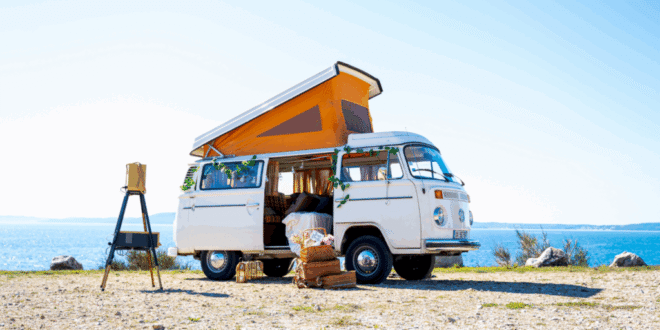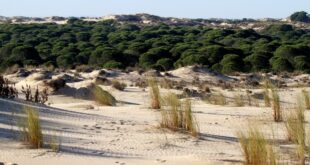Tarifa is a small coastal town in Spain, known for its beautiful beaches and natural beauty. However, tensions are rising between the permanent residents of the town and an increasing number of tourists who travel by campervan. Once a summer only phenomenon, caravans have now become a constant in several neighbourhoods. This is especially true of El Zafer where the locals claim that the situation has spiralled out of control.
“Sometimes I think I’d be better off if thieves came instead at least that would be over quickly,” said one exasperated resident. “These people have no sense of reality.” He described how rows of campervans are parked just meters away from private homes. This creates noise and security issues, as well as blocking views. They’re right against our windows. “It’s a danger because anyone could climb and break in.” It may seem extreme, but the sentiment is growing in the community. Residents report that camper van tourists often treat public spaces as private campgrounds, setting up tables and chairs, hanging laundry, and disposing of waste improperly despite clear local ordinances that prohibit such behaviour outside of designated areas.
While Spanish law allows camper vans to park like any other vehicle, it prohibits activities associated with camping such as overnight stays in unauthorised places, extending awnings, or discharging wastewater. In reality, enforcement is minimal, and in Tarifa it’s almost nonexistent. Locals claim that the absence of municipal oversight or police presence has transformed some streets into semi permanent encampments. El Zafer’s resident said, “It feels like you are living in a tent.” “And no-one is coming to clean it up.”
Infrastructure and Environment Under Stress
With many travellers avoiding formal campsites some of which cost as little as €10–€15 per night the town is grappling with an unsustainable level of footfall. The effects range from blocked streets and overflowing trash bins to serious environmental concerns. Locals complain about the use of natural areas for toilets and grey water dumping in ecologically sensitive areas. “You drive a luxurious camper, but can’t you spend a couple of euros for proper facilities?” One business owner asked. “That’s not tourism that’s freeloading.”
Residents are becoming more vocal about the pressure placed on local infrastructure, such as waste collection, emergency services, and water supply. Some cases have seen conflicts over land access, hiking paths, and dunes due to the presence of unauthorised campers.
Community Calls for Regulating
As complaints multiply, so do calls for local government intervention. The community has proposed the creation of affordable, well-equipped camper zones at the edge of town. They also suggested increased enforcement of camping regulations and fines on repeat offenders. Many also demand better signage and education campaigns aimed at tourists, especially foreigners who are unaware of local laws. Another resident clarified, “This is not about being against tourists.” It’s all about respect. Tarifa is beautiful, but do not turn it into a personal backyard.
Some residents have taken matters in their own hands, in the absence of a firm municipal response. Handwritten signs reading “No camping here” The following are some examples of how to get started: Please respect our homes There are now stickers on lampposts and fences. Others are planning to form neighbourhood associations in order to lobby for more strict controls ahead of the peak season next year.
Tarifa at a Crossroads
The dilemma of Tarifa is a reflection of a larger challenge that many towns and villages in Spain face. With over 500,000 camper vans now registered nationwide, the rise of mobile tourism fuelled by social media and post-pandemic travel trends — shows no signs of slowing. Tarifa must now find a balance between welcoming tourists and protecting its residents’ quality of life.
“We’ve been opening our doors for many years,” said a long-time homeowner. “But we now ask for boundaries.” Then, everything that makes this place unique to us and our visitors will disappear.
 Costa News Spain Breaking News | English News in Spain.
Costa News Spain Breaking News | English News in Spain.







